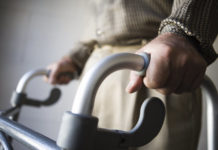Hospice nursing is a specialized branch of healthcare that focuses on providing comprehensive care to patients with terminal illnesses. These nurses work in a variety of settings, including in-patient hospice facilities, hospitals, nursing homes, and private residences. Their primary objective is to alleviate suffering, manage symptoms, and support the physical, emotional, and spiritual well-being of patients and their families.
If you are thinking of becoming a hospice nurse, here’s what you should know about the specialty:
The Role of Hospice Nurses: What Do Hospice Nurses Do?

Hospice nurses shoulder a range of responsibilities to ensure the highest quality of care for patients and their families during the end-of-life journey. These responsibilities include:
Assessing and Monitoring
Hospice nurses perform comprehensive assessments of patients to evaluate their physical, emotional, and spiritual needs. They monitor symptoms, vital signs, and any changes in the patient’s condition to develop individualized care plans.
Pain and Symptom Management
Hospice nurses are skilled in managing pain and other distressing symptoms such as nausea, shortness of breath, and anxiety. They collaborate with the interdisciplinary team to develop effective strategies for symptom control, ensuring optimal comfort for patients.
Medication Administration
Hospice nurses administer medications as prescribed, including pain medications, sedatives, and medications to alleviate specific symptoms. They monitor the effects of medications and make necessary adjustments to ensure optimal pain management and symptom relief.
Care Planning and Coordination
Hospice nurses develop comprehensive care plans in collaboration with the patient, family, and interdisciplinary team. These plans outline the goals of care, address specific needs, and incorporate the patient’s preferences and values. Nurses coordinate with other healthcare professionals, such as physicians, social workers, and therapists, to ensure seamless and coordinated care.
Emotional and Psychosocial Support
Hospice nurses provide emotional support to patients and their families, offering a listening ear, empathy, and guidance. They facilitate open communication and help families navigate the emotional challenges that arise during the end-of-life process. They may also provide referrals for counseling or support groups as needed.
Patient and Family Education
Hospice nurses educate patients and families about the disease progression, treatment options, and what to expect during the dying process. They provide information on available resources, assist with advance care planning, and guide families in making informed decisions about care.
Wound Care and Palliative Procedures
Hospice nurses are skilled in wound care and perform palliative procedures to alleviate discomfort and maintain skin integrity. They provide guidance on proper positioning and assist with managing symptoms related to pressure ulcers or other wounds.
End-of-Life Rituals and Bereavement Support
Hospice nurses assist families in planning and implementing end-of-life rituals and ceremonies that align with their cultural and spiritual beliefs. They offer support and resources to families during the bereavement period, facilitating access to grief counseling and bereavement support groups.
Documentation and Record-Keeping
Hospice nurses maintain accurate and detailed medical records, documenting assessments, interventions, and patient responses. They ensure compliance with legal and regulatory requirements and contribute to the interdisciplinary team’s communication and continuity of care.
Self-Care and Professional Development
Hospice nurses prioritize self-care and engage in activities that promote their own physical, emotional, and mental well-being. They participate in ongoing professional development to stay updated on best practices in hospice care and enhance their skills and knowledge.
What Makes A Good Hospice Nurse?

Hospice nursing requires a unique combination of personal qualities and professional skills. Some of the essential attributes that characterize exceptional hospice nurses include:
Compassion: Hospice nurses approach their work with deep compassion, recognizing the vulnerability and fragility of patients and their families. They empathize with their emotional struggles and strive to provide comfort and solace during this challenging time.
Communication: Effective communication is crucial in hospice care. Hospice nurses possess excellent interpersonal skills, enabling them to communicate sensitively, listen attentively, and convey complex information with clarity and empathy.
Cultural Competence: Each patient and family has unique cultural and spiritual beliefs that influence their end-of-life preferences. Hospice nurses respect and understand diverse cultural perspectives, adapting care plans to meet individual needs while honoring cultural practices and traditions.
Resilience: The nature of hospice nursing can be emotionally demanding. Nurses must possess emotional resilience to cope with their own feelings of loss and grief while providing unwavering support to patients and families. They find strength in their ability to make a positive impact during a profoundly challenging time.
Critical Thinking: Hospice nurses are skilled in critical thinking and problem-solving. They assess complex situations, anticipate needs, and make informed decisions to ensure the highest quality of care. They continuously evaluate and adjust care plans based on the evolving needs of patients and families.
Teamwork: Collaboration is essential in hospice care, as it involves a multidisciplinary team working together to meet the diverse needs of patients. Hospice nurses excel in teamwork, fostering strong relationships with physicians, social workers, counselors, spiritual advisors, and other healthcare professionals to provide comprehensive support.
The Rewards and Challenges of Being A Hospice Nurse
Hospice nursing is a calling that brings both rewards and challenges. While witnessing the end of life can be emotionally taxing, hospice nurses derive immense satisfaction from knowing they have made a difference in the lives of their patients and families. The privilege of providing comfort, dignity, and compassion during a vulnerable time is a source of deep fulfillment.
However, the emotional toll of caring for individuals who are dying should not be underestimated. Hospice nurses often develop close bonds with patients and their families, and experiencing loss can be difficult.
They must prioritize self-care, seek support from colleagues and support networks, and engage in activities that promote their own well-being to prevent burnout.



















